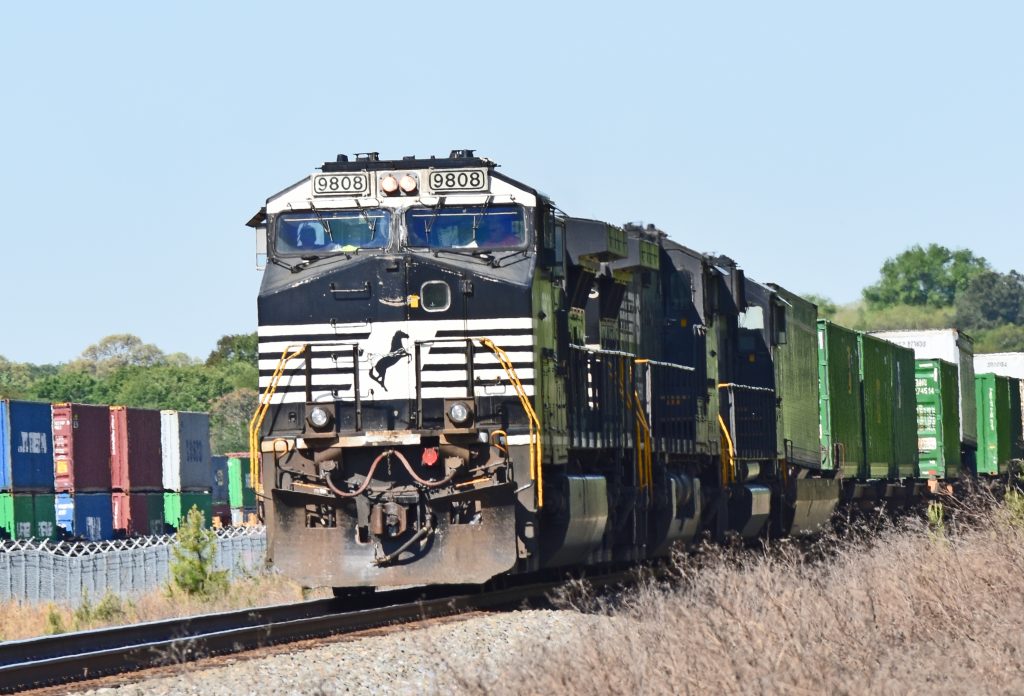The Latest Woke Mob Is… Norfolk Southern Shareholders?
The American Right has been having a normal one, between the supposedly impending criminal indictment of the de facto head of their party, and grasping at straws trying to figure out how to blame Biden and the left for, well, basically anything. One popular target these days is Pete Buttigieg, who has presided over at least a gesturally progressive and historically proactive management of federal transportation policy, over his apparent inability to stop the catastrophic derailment of a Norfolk Southern train in East Palestine, Ohio in February. (He’s also the target of homophobic jokes, because the Republican Party has stopped pretending to be a party of pluralists and is now just a party of bigots). Never mind that one cause of the disaster was implicated by the rescinding of a safety rule under the Trump Administration– this is squarely Pete’s fault! It seems, though, that there’s another complicating factor that might stop Republican logic in its tracks, and that’s the fact that Norfolk Southern shareholders are now suing the company for prioritizing profit over safety. And that’s not all!
Accounting Concept: Contingent Liability
Risk is one of the hardest and most important things to quantify in business. I often give the Donald Rumsfeld quote, as it was used to me in a business class to differentiate risk from uncertainty: “We have the known knowns, the known unknowns [risk], and the unknown unknowns [uncertainty]. We don’t know what it is that we don’t know.” And another one of my favorites: remember Charles Perrow’s idea of Normal Accidents, which, to paraphrase a long and complex book, basically says that in very complex systems, stuff breaks? This might represent a known unknown. The unknown unknowns are things like– admittedly outlandishly for this example- “what if, instead of operator error or mechanical failure, a massive magma beast emerged from the bowels of the earth in East Palestine, Ohio, and swallowed up the train tracks, creating an environmental catastrophe?”
Of course, such an outlandish idea might have seemed as likely to whatever person was, no pun intended, asleep at the wheel in recent months at NSC over safety issues. This directly translates onto the balance sheet when things blow up and cost a lot of money. Contingent liability is an accounting concept that attempts to quantify the costs expected to be incurred by pending litigation. It’s hard for auditors, actuaries, and other operators of such arcane magic as financial accounting to quantify the probability of an outcome determined by many complex factors, and, while the East Palestine cases will be tied up in court for years if not decades, Norfolk Southern’s balance sheet will inevitably bulk up on this line item for its next 10-Q.
Republicans Hate ESG. What That Is, And Why It Matters.
And, of course, this will frustrate shareholders, who were expecting to have their dividends unencumbered by poor management and maintenance decisions that led to the catastrophic derailment in Ohio. So, they’re suing. The argument made in the case is that NSC didn’t manage risk properly and downplayed the safety risks of its operating model. Now, there are lawsuits virtually any time there is a major stock swing, because the Wall Street equivalent of ambulance chasers– people who follow stock crashes rather than car crashes- is a group of particularly clever and extra-sharkish legal operators.
But rarely are these things making national news. Huge stock swings happen all the time, and when they do, some Harvard-educated goon in a back room is comparing technical analysis charts with press releases and other statements made by the company to see if it’s possible to poke holes in those statements when compared to the charts. Thus a lawsuit is born.
Frivolous Lawsuits vs. Legitimate Complaints
Many of these Stonk Suits are settled out of court– often to the tune of tens of millions of dollars, according to one study from 2020. Another report by Cornerstone Research showed more than four hundred class action suits filed in 2021 alone, which is the highest number since the dot-com bubble. Of those filings, nearly half were related to mergers and acquisitions, while just over a quarter (28%) involved accounting issues. The remaining cases were related to allegations of misleading or false statements, corporate governance issues, and other matters. (Most filings refer to misleading or false statements, but these are so difficult to prove in court given the high bar for providing fraud). NSC’s East Palestine disaster will inevitably be tied up in court for years.

Shareholder Value: Sacrosanct, Myth, or Misleading Notion?
The biggest pushback against “woke” investing– whose definition among the right is even so poor that it’s mostly meaningless- is based on the erroneous notion that companies focusing on ESG metrics aren’t focused on profitability. If you listen to the likes of Tucker Carlson, you’d perhaps believe that the companies in the Dow were more concerned with turning the frogs gay than they were paying out dividends. As I mentioned in my previous article, Wall Street cares about Wall Street. It cares about money. It’s not going to do something if it doesn’t make business sense. And, as I also mentioned, companies make horrific decisions all the time– usually driven by the ego of a dysfunctional, addled mind like that of Elon Musk- but, most generally, they are doing things that they think will drive the most profitability. If you can’t attract talent because your talent wants to work somewhere that offers same-sex partner benefits, then that seems like a prudent mentality!
A separate lawsuit focuses on the fact that Norfolk Southern essentially bragged about the values of PSR before paying out millions in bonuses to executive leadership. Just as in the case of the banking crisis, companies will not rein in greedy behavior without incentives to do so. That’s why I say that companies have the obligation to work proactively with regulators. It ensures that companies are able to air their grievances while also discussing new ideas for how to get down with the get down. In the meantime, it’s interesting that the shareholders are suing NSC instead of Pete Buttigieg. Republicans don’t seem to have any problem with a giant, greedy corporation making monumental errors that result in, I don’t know, massive spills of vinyl chloride and dioxins. I guess the woke mob of millionaire and billionaire investors is going to try and challenge the man on their own.



